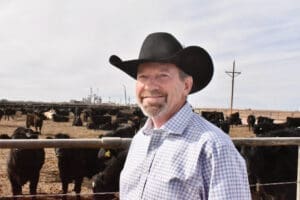By Will Verboven, Contributing Editor
Canada doesn’t usually garner much interest in the United States, being we tend to be quiet, boring and hunkered down for half the year just trying to keep warm. But recently, thousands of courageous Canadians spearheaded by hundreds of heroic truckers descended onto Canada’s capital city, Ottawa, Ontario. Many truckers and their semi rigs started their crusade 2,800 miles away in the province of British Columbia and were joined by hundreds of vehicles and trucks as they convoyed eastward.
As you might expect, Alberta was a hotbed of trucker support and supplied eager participants. It is also the home of some principal organizers who later found themselves thrown in jail and their financial assets frozen by a vindictive federal Liberal/Socialist government. Upon reaching the capital, dozens of semis were able to occupy the streets in front of the parliament buildings. Those semis looked like the assault tanks of the people’s revolution, and the truckers’ subsequent blockade and protest demonstrations were seen on media worldwide. Incredibly, that Canadian trucker-led protest has spawned similar kinds of truck protests in the United States, Europe and even New Zealand. So what was it all about, millions worldwide wondered, considering Canada is usually viewed as the boy scout of the world.
The truckers’ blockades started as a protest against the imposition of new COVID border restrictions by the Canadian and American governments that required truckers crossing the border to be fully vaccinated. That’s after more than two years when truckers were considered to be heroic essential workers and were not required to be vaccinated or tested to cross the border. What drove truckers over the edge was the hypocrisy of this new restriction and the multitude of other ever-changing COVID and mask restrictions imposed by a distant, out-of-touch federal government.
A similar feeling I suspect is shared by most Americans. Interestingly, a clear reflection of Canadians’ perspective on the issue was a nationwide poll that showed a whopping two-thirds of the population supported the truckers’ cause. As noble as the truckers’ and protestors’ intentions were in demonstrating against the new, useless COVID restrictions, it was not the underlying factor that caused so many Canadians to support the blockades and protests in Ottawa and elsewhere.
What seems to unite Canadians outside of the big urban centers in eastern Canada is that the federal Liberal progressive government is so despised by regular working folks, farmers, ranchers and others across the rest of the country – that may sound familiar to Americans. Because Canada is governed under the Westminster parliamentary system, the latest federal government was elected with only 30 percent of the popular vote but is propped up by a small socialist party (it’s a long story). Both parties are urban-based, green, left-wing entities dedicated to destroying the energy industry and believe Canada will save the planet. As you might expect, this type of progressive, elitist government sees truckers and their supporters as the enemy that must be belittled, neutralized and put back in their place. But I digress.
What has all this got to do with the cattle industry? Well, the trucker blockades were not just in Ottawa; one was set up at Coutts, Alberta, which is next to Sweetgrass, Mont. That border crossing is the primary entry point for beef and cattle between Canada and the United States. It sees tens of thousands of cattle trucks and refrigerated beef trucks crossing that border point every year – it’s a billion-dollar-plus business. The Coutts trucker blockade stopped all border traffic, which had devastating effects on Alberta feedlots and processing plants. The giant Cargill and JBS plants are entirely integrated into the North American beef business, and even one day’s blockade upsets a delicately balanced continental distribution system.
It wasn’t just beef and cattle that were impacted; feedlots up here import hundreds of millions of dollars’ worth of U.S. Midwest corn, distillers’ grains, supplements and hay. That, too, was stopped. Ironically many of the folks blockading the Coutts border traffic were directly/indirectly involved in the agriculture business – it was like shooting yourself in the foot to spite your nose. Some local grain farmers brought huge tractors to the blockade, easy for them to rationalize; Canadian grain mostly moves east and west by rail to seaports, not south across the Montana border. I expect blockaders came under pressure from feedlot operators and others connected to the beef industry to end the border blockade. Canadian Mounties also seized quite a few firearms from some of those involved in the blockade – guns are highly restricted up here, and charges were pressed. All of that caused the Coutts blockade to disband quickly.
For those courageous folks involved in the Ottawa blockade, in a massive show of intimidation, hundreds of police moved in to end the blockade, seizing the trucks and arresting more than 180 heroic protestors. In addition, the Federal government, for the first time, activated emergency measures legislation to freeze the financial assets of organizers involved and to use the military if necessary. Regardless, I suspect that this Canadian-style people’s revolt is not yet over. Like so many revolutions, it will lie low for a while. And it’s all happening in boring, quiet Canada. n
E-mail comments to willverboven@hotmail.com





